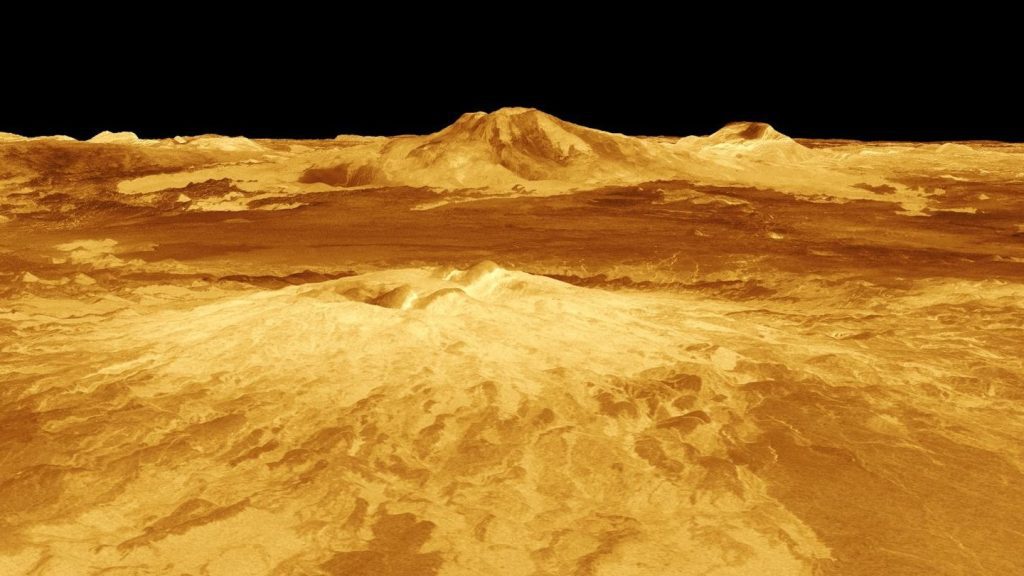Compared to Earth, Venus is a hostile planet – it has a pressure of about 100 times and a temperature of about 450 degrees Celsius on the planet’s surface. But in the dense atmosphere of Venus, at an altitude of 50 to 60 kilometers, the temperature and pressure are similar to those at the Earth’s surface. For a long time, astrobiologists have speculated that at least bacterial life could exist there. However, the research team now has to reject this hypothesis. The metabolism of such microbes would not be reconcilable with the observed composition of the atmosphere of Venus, according to the scientists in the journal Nature Communications.
“We’ve spent two years trying to explain the strange sulfur-based chemistry in Venus’ clouds,” explains Paul Reimer of the University of Cambridge. In particular, the abundance of sulfur dioxide in the atmosphere of Venus is puzzling. On Earth, sulfur dioxide comes mainly from volcanoes. There are also active volcanoes on Venus that can spew sulfur dioxide into the atmosphere. However, the proportion of this gas is high only in the lower cloud – and above that it is again rapidly decreasing. According to Reimer and colleagues, some processes must consume sulfur dioxide.
“Life is very good at creating strange chemistry. That is why we looked for ways to explain observations with the help of bacteria,” explains Reimer. Researchers’ idea: Sulfur dioxide serves as a source of food and energy for bacteria in the temperate zone of the atmosphere. So the scientists prepared a list of potential metabolic reactions based on sulfur dioxide to see if that could explain the drop in the gas. And they were initially successful with this: the bacteria can actually reduce the amount of sulfur dioxide, decreasing with increasing altitude.
But the supposed success has a benefit: such a metabolism always produces excretions – other molecules that are not found in the atmosphere of Venus. So the researchers had to reject their hypothesis. “Our models show it’s not working,” says Rimmer’s colleague Shawn Jordan. “They go against everything we know about the atmosphere of Venus.”
Thus, the mystery of sulfur dioxide in the atmosphere of Venus remains unsolved. Researchers now want to explore non-biological approaches to exotic chemistry in the planet’s clouds. They also hope that soon they can apply their method to planets around other stars. Using the new James Webb Space Telescope, for example, sulfur compounds can be detected there. “We can then also apply what we learned from Venus to the exoplanets,” says Reimer.

“Social media evangelist. Baconaholic. Devoted reader. Twitter scholar. Avid coffee trailblazer.”








More Stories
Longest jets in the universe discovered – giant particle streams as long as 140 Milky Way galaxies in a row
New method reveals 307 supernova remnants
Snapchat is upping the ante on augmented reality glasses